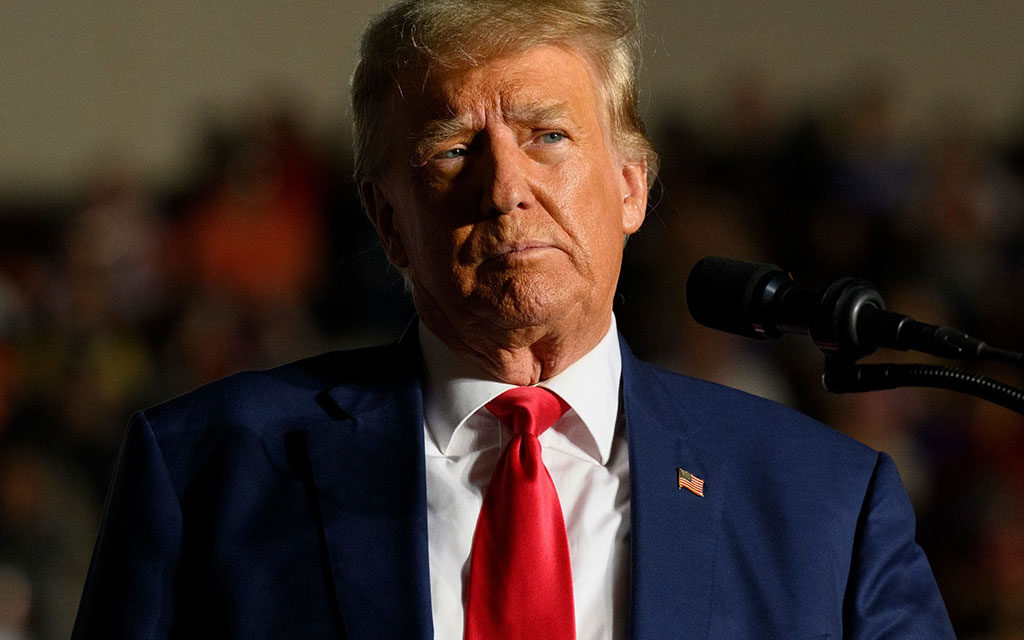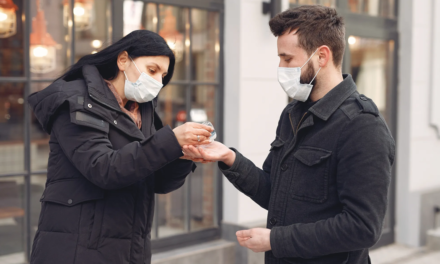We’ve long believed in the Rule of Law because it is basic to who we are, as individuals and as a country. Our most basic and treasured belief is that no man is above the law, and everyone should be treated fairly and equally. It is a treasure and the keystone to our democracy. That said, do most political and legal scholars delve into the ethics of the rule of law? Is ethics a subset of the rule of law? Does it play a role in how justice is served by recognizing the rule of law as a moral imperative? Our country functions as a vibrant democracy because we have rights and privileges where legal order prevails. That’s the easy part. The hard part comes when men say, act, or believe they are above the law because of the power they hold.
The best example in our legal history of fair and equal treatment is United States v. Nixon.[1] In that singular 1974 case the president received the same treatment under the law that any citizen could expect. He was held accountable for his actions precisely because the Rule of Law prevailed—no man is above the law—everyone should be treated fairly and equally.
The facts in U.S. v. Nixon are simple. “A grand jury returned indictments against seven of President Richard Nixon’s closest aides in the Watergate affair. The special prosecutor appointed by Nixon and the defendants sought audio tapes of conversations recorded by Nixon in the Oval Office. Nixon asserted that he was immune from the subpoena claiming, “executive privilege,” which is the right to withhold information from other government branches to preserve confidential communications within the executive branch or to secure the national interest.”[2]
The rule of law question presented by the Nixon case was equally straightforward. “Is the President’s right to safeguard certain information, using his ‘executive privilege’ confidentiality power, entirely immune from judicial review?”[3]
SCOTUS’s answer was a classic rule of law answer. “No. The Court held that neither the doctrine of separation of powers, nor the generalized need for confidentiality of high-level communications, without more, can sustain an absolute, unqualified, presidential privilege. The Court granted that there was a limited executive privilege in areas of military or diplomatic affairs but gave preference to ‘the fundamental demands of due process of law in the fair administration of justice.’ Therefore, the president must obey the subpoena and produce the tapes and documents. Nixon resigned shortly after the release of the tapes.”[4]
The ethics underlying the Nixon decision were his wrongdoing, his lying, and his total disregard of criminal laws, not to mention his flagrant violation of campaign finance laws. At the core of his campaign were the Nixon tapes. When forced to reveal them, the country learned the extent of Nixon’s involvement in the Watergate cover-up and his reelection campaign’s violations of campaign finance laws. The most glaring of his ethical flaws was his campaign paid large sums to the Watergate burglars and extorted millions in illegal hidden contributions from corporations.[5]
To fully understand the ethics involved in U.S. v. Nixon, it is necessary to consider the ethical legitimacy of criminal law. “Primary legitimacy derives its validity from its coherence with ethical principles of responsibility, thus together shaping a message about what is right and wrong. Under this interpretation, severing of the ties between law and ethics does not mean that criminal law ceases to bind in the formalistic sense. . . Secondary legitimacy . . . reposes the validity of criminal law in decisions of an authorized legislator, thus deciding upon the bindingness of normative determinations . . . Justifiability of ethical legitimacy of criminal law, where the principle of dignity of the person is dominant, is shown by reference to the example of unconscious non-intentionality.”[6]
Nixon, his campaign, his “plumbers,” and his enablers launched an era of reform. Congress strengthened campaign laws, created the Federal Election Commission to enforce those laws and passed legislation requiring greater government transparency.[7]
Now, fast forward a half century—what happened in that fifty-year period? Trump happened. “Similar to Nixon, former President Donald Trump aggressively asserted executive privilege during his term in office. The Trump administration claimed that executive privilege justified its withholding of potential evidence of wrongdoing relating to, among other things, Special Counsel Robert Mueller’s full report on Russian influence in the 2016 election, Trump’s attempt to fire Mueller and the addition of a citizenship question on the 2020 Census. Trump also attempted to shield evidence of alleged personal wrongdoing from the light of day. In 2018, the Manhattan District Attorney subpoenaed Trump’s personal accounting firm, seeking the president’s personal and business financial records and tax returns. The District Attorney’s office was investigating , among other things, whether Trump or his company violated state law by making hush money payments to women alleging affairs with Trump during the 2016 presidential election. Trump fought the subpoena. Echoing Nixon, Trump claimed that he could ignore the subpoena because a sitting president should enjoy “absolute immunity from state criminal process.” But in an important ruling in July 2020, Trump v. Vance—the Supreme Court unanimously disagreed.[8] The Court reaffirmed its previous ruling in Nixon and its principle that, “the public has a right to every man’s evidence”—including evidence held by the president, who, unlike a king, “is ‘of the people,’ and subject to the law.”[9]
The revelations in the Nixon case and the Trump case illustrate how reforms of our ethics laws and campaign finance system are necessary. Transparency is essential to hold our elected officeholders to account. As Nixon himself said, the “People have got to know whether or not their President is a crook.”[10]
The September 2020 report from the Campaign Legal Center is a reminder and a warning. The title, Revisiting President Trump’s Forgotten Five-Point Ethics Plan, is Déjà vu Nixon; all over again. “Drain the swamp has now become a generic campaign slogan, but President Trump first used it in reference to a five-point plan that he claimed would ‘make our government honest again’ and halt the revolving door in Washington, D.C. . . Trump’s ‘drain the swamp’ speech, and his broader rhetoric on the campaign trail, correctly diagnosed many of the problems plaguing Washington: influence peddling and mass flows of money into politics that keep our elected representatives accountable to wealthy special interests – not the American people. Trump’s five-point plan was not a comprehensive set of reforms—and notably did not address presidential conflicts of interest. . . Yet, after taking office, Trump never mentioned the five-point plan again. Besides signing an executive order adopting a version of President Obama’s ethics pledge for political appointees, Trump has taken no action to follow through on his ‘drain the swamp’ plan.”[11]
The Brennan Center for Justice is a nonpartisan law and policy institute. It exists to uphold the values of democracy. It stands for equal justice and the rule of law. On August 4, 2023, it reminded writers, in particular, that the Trump indictment was continuing to wreak havoc ahead of the 2024 presidential election. “For the first time, a former president is facing criminal charges for a wide-ranging conspiracy to thwart American democracy. In painstaking detail, the indictment recounts Trump’s scheme “to overturn the legitimate results of the 2020 presidential election by using knowingly false claims of election fraud.” Regardless of how the case proceeds, one thing is already clear: the attacks on our democracy did not end on January 6, 2021. The plot to overturn the 2020 election has spawned an ongoing election denial movement that is undermining voting rights, weakening our electoral system and making it more vulnerable to future attacks. This plan not only builds off the playbook used by Trump and his coconspirators in 2020, but also invokes the same lies about voter fraud and a “stolen” 2020 election detailed in the indictment. Although these thoroughly discredited lies continue to unravel as more and more of their purveyors face accountability, the damage being done in their name is far from over.”[12]
The genesis of the rule of law as a written document is traditionally traced to England. “In 1215, King John of England signed the Magna Carta (or Great Charter). A group of barons, powerful noblemen who supported the king in exchange for estates of land, demanded that the king sign the charter to recognize their rights. Article 39 of the Magna Carta was written to ensure that the life, liberty, or property of free subjects of the king could not be arbitrarily taken away. Instead, the lawful judgment of the subject’s peers or the law of the land had to be followed.”[13]
James Madison was an early believer and prodigious writer on the rule of law. He said, “If men were angels, no government would be necessary. In framing a government which is to be administered by men over men, the great difficulty lies in this: you must first enable the government to control the governed; and in the next place oblige it to control itself.”[14]
Madison’s quote, “Gets at the heart of the problem that even a government of law is ultimately ‘administered by men over men.’ The framers of the U.S. Constitution addressed this problem by dividing power among the different branches of government (legislative, executive, and judicial). This framework for government, known as the separation of powers, ensures that no one person is able to gain absolute power and stand above the law. Each branch of our government has some level of control or oversight over the actions of the other branches.”[15]
Elizabeth Cady Stanton[16] famously said in 1860, “To make laws that man cannot and will not obey, serves to bring all law into contempt. It is very important in a republic that the people should respect the laws, for if we throw them to the winds, what becomes of civil government?”[17] Her quote confirms that people, all people, must obey laws because if laws are not followed then the respect of citizens will erode.
U.S. Supreme Court Justice Felix Frankfurter added much to the written dialogue of the rule of law. “There can be no free society without law administered through an independent judiciary. If one man can be allowed to determine for himself what is law, every man can. That means first chaos, then tyranny.”[18]
Arguably, every writer in America has read Martin Luther King, Jr., famous letter from the Birmingham Jail in 1963. “I submit that an individual who breaks a law that conscience tells him is unjust, and who willingly accepts the penalty of imprisonment in order to arouse the conscience of the community over its injustice, is in reality expressing the highest respect for law.”[19]
Trump is clearly the first president to threaten the rule of law, even though he says he loves it. The Washington Post put it this way. “Trump loves the rule of law. As long as it targets his enemies. After his impeachment trial, President Trump declared himself, ‘I guess, the chief law enforcement officer of the country.’ And then he called for investigations of those who had investigated him, undid prosecutions that had resulted from the Mueller probe of Russia’s interference in the 2016 election, pursued his pursuers all the way to the Supreme Court, encouraged militias to ‘liberate Michigan,’ fired inspectors general who might find wrongdoing in the wrong places and, most recently, tweeted about ‘some very nervous criminals out there’ as he set out to get to the bottom of the bottomless ‘Obamagate.’ Trump places himself above the rule of law, so it’s easy to see him as a grave threat to it. But as much as the president distorts facts, the law itself is mostly still intact. The president, aided by Attorney General William Barr, other administration officials and Republicans in Congress, eagerly promotes the law, as when he tweets about perceived opponents like his fired former FBI director, James Comey (‘What are the consequences for his unlawful conduct. Could it be years in jail?’), or former Obama secretary of state John Kerry (who supposedly ‘grossly violated the Logan Act with respect to Iran’). What’s good for the goose may be off limits for the gander, but it’s still good. We do not, for now, live in a tyranny with corrupt laws; we still have just laws. And that bodes well for the survival of norms that seem constantly under assault by a singular president.”[20]
Unquestioningly, the rule of law is a rule of ethics. Both are founded in the interests of justice, acting with integrity, and honesty. “The Trump administration laid bare many longstanding vulnerabilities and opportunities for abuse of power in our system of governance. Unchecked presidential conflicts of interest, interference from the White House in cases at the Justice Department, politically motivated meddling in scientific research at environmental and public health agencies, and the subversion of the confirmation process for political appointees are among the abuses we have catalogued across presidential administrations.”[21]
The International Bar Association is the global voice of the legal profession. They wrote about Trump’s ‘Fake Rule of Law.’ “When President Trump invokes the rule of law, he has something quite different in mind. The US Courts website aptly defines the rule of law as the principle of holding all accountable to public laws that are: ‘Equally enforced,’ ‘Independently adjudicated’ and ‘Consistent with international human rights principles.’ Hearing minority grievances is also noted as central to the notion. President Donald Trump likes to affirm that ‘We believe in the rule of law,’ as he did in a speech to the gun lobby last spring. But the concept that emerges from his use of social media and from his statements is another creature entirely. Far from equal enforcement, President Trump has routinely called for the jailing of his 2016 opponent, Hillary Clinton, by leading chants of ‘Lock her up’. Before the midterm elections, the President savaged his attorney general for lowering the Republicans’ electoral odds by prosecuting his first two supporters in Congress – Chris Collins and Duncan Hunter – for insider trading and misuse of campaign funds. The President notoriously demanded ‘loyalty’ from then FBI Director James Comey and expressed hope that he’d let go of the probe into Russian contacts by his National Security Advisor designate Michael Flynn. In a controversial December 2017 interview, President Trump praised former Attorney General Eric Holder for ‘totally protect[ing]’ his President. ‘I have absolute right to do what I want to do with the Justice Department,’ President Trump opined. ‘But for purposes of hopefully thinking I’m going to be treated fairly,’ he explained, ‘I’ve stayed uninvolved’ in the Russia investigation. . . If law enforcement dares to be disloyal, that is, to enforce the law equally against the President, then it is they who threaten the rule of law as it’s defined by President Trump. Thus, on 15 January, the President retweeted: ‘We must stand with the rule of law against the coup targeting @RealDonaldTrump.”[22]
Writers, ethical writers that is, have a moral obligation to defend the rule of law. The Brookings Institute reminded us that, at least in 2020, “The rule of law is under duress everywhere.”[23]
Madame Wikipedia warns us that the rule of law is a political ideal. “Despite wide use by politicians, judges and academics, the rule of law has been described as ‘an exceedingly elusive notion.’ The functional interpretation of the term ‘rule of law,’ consistent with the traditional English meaning, contrasts the ‘rule of law’ with the ‘rule of man.’ According to the functional view, a society in which government officers have a great deal of discretion has a low degree of ‘rule of law,’ whereas a society in which government officers have little discretion has a high degree of ‘rule of law.’ Upholding the rule of law can sometimes require the punishment of those who commit offenses that are justifiable under natural law but not statutory law. The rule of law is thus somewhat at odds with flexibility, even when flexibility may be preferable.”[24]
With Trump out of the White House, but scrambling to get back in, we face a dilemma. “He didn’t just ignore the law—he found clever ways to get around it. He used a combination of law avoidance, technically legal but ethically dubious sidestepping of the law, and law evasion, illegal in the same way as tax evasion. We call that law ‘avoision’ and Trump’s presidency was characterized by it. That culminated in the 2020 ‘election avoision’ of his attempted coup, a blend of legal but unethical actions such as filing dubious election litigation and outright wrongdoing such as pushing Georgia to just ‘find 11,780 votes.’”[25]
We are on the cusp of an election year. Consequently, the June 2023 indictment of Donald J. Trump for felony violations. Special Counsel Jack Smith summed it up. “Today, an indictment was unsealed charging Donald J. Trump with felony violations of our national security laws as well as participating in a conspiracy to obstruct justice. This indictment was voted by a grand jury of citizens in the Southern District of Florida, and I invite everyone to read it in full to understand the scope and the gravity of the crimes charged. . . Adherence to the rule of law is a bedrock principle of the Department of Justice. And our nation’s commitment to the rule of law sets an example for the world. We have one set of laws in this country, and they apply to everyone. Applying those laws. Collecting facts. That’s what determines the outcome of an investigation. Nothing more. Nothing less.”[26]
Our dilemma, as writers and citizens, is how to balance politics with ethics, and truth with lies. If we get it wrong, unethical politicians will win, and lies will go unpunished. That’s why ethical norms must be identified in what we write while we also identify wrongdoing. Nothing more. Nothing less.
[1] U.S. v. Richard M. Nixon, et al. 418 US 683 (1974)
[2] Ibid.
[3] Ibid.
[4] “United States v. Nixon.” Oyez, www.oyez.org/cases/1973/73-1766. Accessed 18 Aug. 2023.
[5] https://campaignlegal.org/update/nixons-resignation-anniversary-reminds-us-presidents-are-not-above-law
[6] Krzysztof Szczucki. “Ethical Legitimacy of Criminal Law.” International Journal of Law, Crime, and Justice. Volume 53, June 2018, Pages 67-76. See also, https://www.sciencedirect.com/science/article/pii/S175606161730277X.
[7] https://campaignlegal.org/update/nixons-resignation-anniversary-reminds-us-presidents-are-not-above-law
[8] Donald J. Trump v. Cyrus R. Vance, District Attorney of the County of New York. 591 US ___ (2020). Article II and the Supremacy Clause neither categorically preclude, nor require a heightened standard for, the issuance of a state criminal subpoena to a sitting President
[9] Ibid.
[10] https://campaignlegal.org/update/nixons-resignation-anniversary-reminds-us-presidents-are-not-above-law
[11] Ibid.
[12] https://www.brennancenter.org/our-work/analysis-opinion/threats-elections-didnt-end-january-6
[13] https://www.americanbar.org/advocacy/rule_of_law/what-is-the-rule-of-law/
[14] James Madison, Federalist Paper No. 51 (1788). [14] https://www.americanbar.org/advocacy/rule_of_law/what-is-the-rule-of-law/
[16] https://www.history.com/topics/womens-history/elizabeth-cady-stanton
[18] United States v. United Mine Workers, 330 U.S. 258 (1947). See also, https://en.wikipedia.org/wiki/United_States_v._United_Mine_Workers_of_America
[19] https://en.wikipedia.org/wiki/Letter_from_Birmingham_Jail
[20] https://www.washingtonpost.com/outlook/trump-rule-law-enemies/2020/05/28/7852771a-9de7-11ea-b5c9-570a91917d8d_story.html
[21] https://www.brennancenter.org/issues/bolster-checks-balances/ethics-rule-law
[22] https://www.ibanet.org/article/A0F1E434-3212-41F5-A0F4-8CC14282904B
[23] https://www.brookings.edu/articles/the-rule-of-law-is-under-duress-everywhere/
[24] https://en.wikipedia.org/wiki/Rule_of_law
[25] https://www.newsweek.com/desantis-trump-rule-law-opinion-1804824
[26] https://www.justice.gov/sco-smith/speech/special-counsel-jack-smith-delivers-statement

I am an author and a part-time lawyer with a focus on ethics and professional discipline. I teach creative writing and ethics to law students at Arizona State University. Read my bio.
If you have an important story you want told, you can commission me to write it for you. Learn how.






 I am an author and a part-time lawyer with a focus on ethics and professional discipline. I teach creative writing and ethics to law students at Arizona State University.
I am an author and a part-time lawyer with a focus on ethics and professional discipline. I teach creative writing and ethics to law students at Arizona State University.  My latest novel is Hide & Be.
My latest novel is Hide & Be.  If you have an important story you want told, you can commission me to write it for you.
If you have an important story you want told, you can commission me to write it for you.